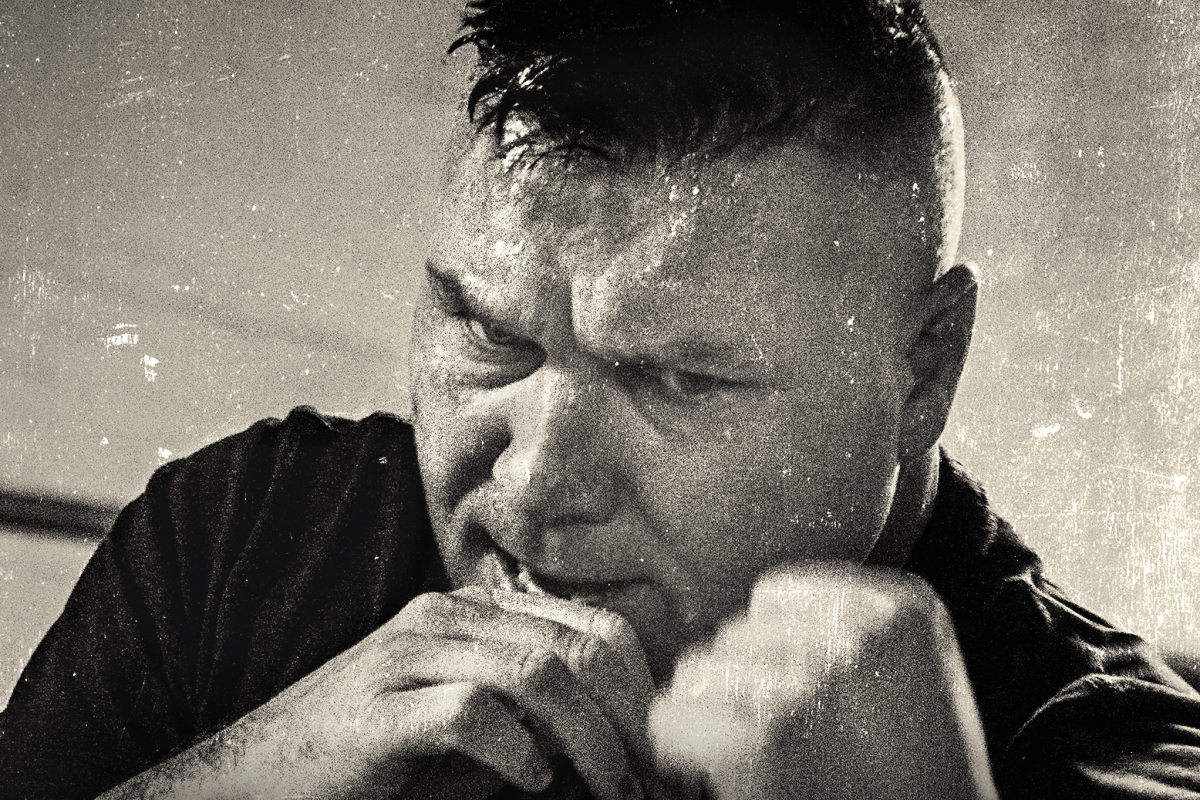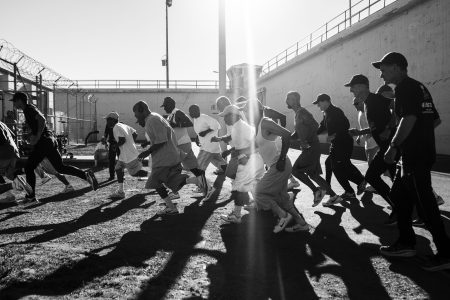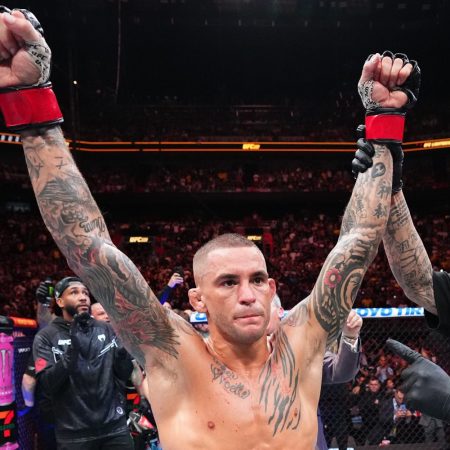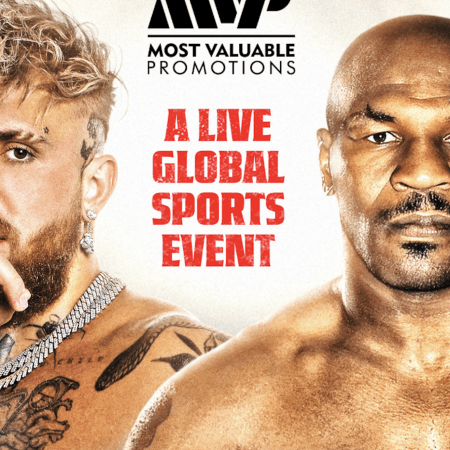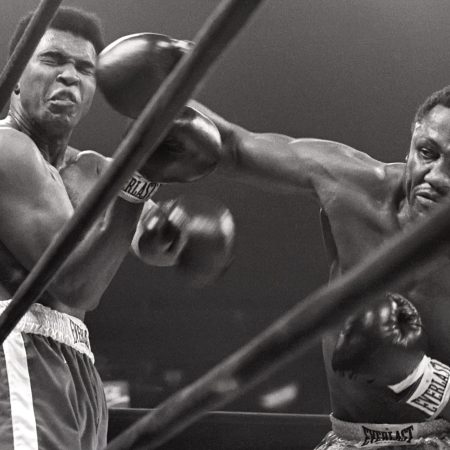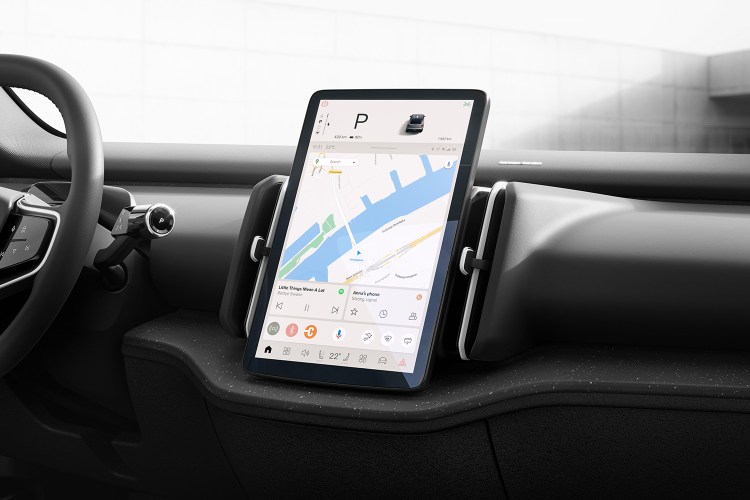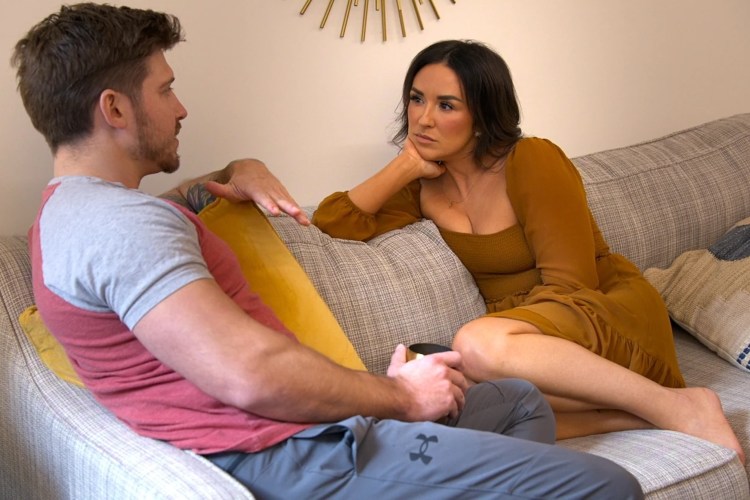Undefeated in the underground, old-fashioned sport of bare-knuckle boxing, Canada native Bobby Gunn is a middle-aged father of two who works as a powerwasher in New Jersey when he’s not smashing opponents in the face while putting his own battered mug at risk. Written by former Rolling Stone, GQ and Esquire magazine editor Stayton Bonner, Bare Knuckle: Bobby Gunn, 73-0 Undefeated. A Dad. A Dream. A Fight Like You’ve Never Seen. from Blackstone tells the 50-year-old’s story. Here’s an excerpt of the third chapter, “Suburban Brawler.”
Gunn is up at dawn six days a week, cruising for jobs in his truck, a black extended-cab Z71 with paving equipment in the bed, ladders strapped to the top, a chrome Jesus fish on the tailgate, and the slogan “Powerwashing Roofs and Driveways: Protective Coatings for All Surfaces” in big block letters alongside an American flag on the rear window. Max sits in his lap. Bobby Jr. sits shotgun. On the doors, yellow metal decals in the shape of New Jersey read “Serving the Tri-State Area for Over 20 Years.”
At night, Gunn removes them, wiping off the bug splatter and placing them inside a protective sheath. “I’m a clean freak,” he says, pulling out from Ike’s, heading to the morning’s job. “I wash this truck inside and out twice a week.”
This is Gunn’s office, the space he works from most of his day. The truck’s interior includes a wallet-size photo of his family seated around a shopping-mall Santa Claus, a wooden baseball bat, a pair of championship boxing belts tucked beneath the seat, and a small bottle of Listerine from which he occasionally gargles and swallows. At stoplights, he takes out a straight razor and shaves his face in the rearview mirror — no shaving cream — afterward patting his skin with rubbing alcohol. Aspirin bottles are everywhere, Gunn preferring pain relievers, homemade remedies of whiskey and cough syrup (the only time he touches alcohol), and pulling his own teeth and setting his own bones over modern medicine.
“Who’s going to hire me for a job if they see a cast on my hand?” he asks.
The SiriusXM channel is permanently set to the Elvis station, Gunn periodically joining in. “Retuuuurn to sender! Ad-dress un-known!” Coffee cups and Pepsi bottles abound. Gunn never drinks water. “I got tired of it,” he says, shrugging.
While driving, Gunn constantly fields calls and tweets from fighters, promoters, lawyers, trolls, fans — whoever. At one point, a man caller-ID’d as “Tony the Rhino” rings.
“You’re nothing but a big sausage!” Gunn says, laughing, by way of greeting. A pause, his face suddenly serious. “Was he being a cunt?” Whether it’s praise or a fight offer or a death threat, Gunn answers every call using an earbud dangling off the left side of his face. Once a day, he checks in with his father, Robert Williamson Gunn.
“Are you okay, old boy?” Gunn will ask.
Robert lives alone in a room at the Three Diamond Inn, an aging single-story motel in Niagara Falls, Ontario. To reach him, Gunn calls his room, lets the phone ring three times, hangs up, and then immediately calls back. Only then will Robert pick up, knowing that it’s his son and not one of his local enemies. Suffice it to say, he and Gunn have a complicated relationship. For years, Robert withheld affection from his only child, brutaly training him as a fighter while never giving a word of praise. Now they are locked in another kind of fight. A hardened bare-knuckle brawler, the seventy-two-year-old widower recently punched out a man thirty years his junior in a bar. Also, after falling on a construction job, he has begun to turn back to the bottle. Gunn is trying to return him to God.
“When my mom died, my dad actually died,” Gunn says. “He’s never been the same. So I visit and give him his wee haircut, clean the bottles from his room, and say, ‘Come on, you gotta pull together, old boy; I got big things cooking.’”
Today, Gunn is slated to work an asphalt-sealing job in Bayonne, New Jersey. An independent contractor, he hustles for every job he can scrounge, and is now trying to get today’s client, a man who said he wanted his mother’s driveway seal-coated, on the phone. ”Hello, Robert Gunn here,” Gunn says, leaving a message. “We can do your mom’s house right now. Please call.”
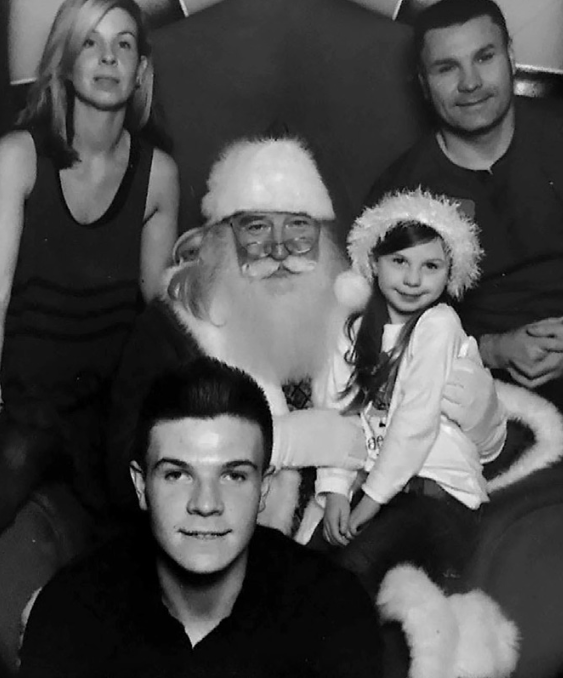
Gunn has been working six days a week since leaving school after the second grade, doing everything from painting grain silos to banging nails, but his true specialty, the craft of his father and grandfather before him, is sealing asphalt. In the bed of Gunn’s truck is his prized possession, a heavy-grade aluminum box the size of a dog’s coffin, filled with the black tarry liquid he uses to tack-coat and weatherproof roads, driveways, parking lots, roofs and chimney flashings. It is sticky, sweltering, backbreaking work. Gunn sprays, pours, rolls and brushes the hot rubberized coating by hand, filling in cracks in asphalt while dodging low-hanging electrical lines and angry dogs. He rarely wears protective gloves or a dust mask. He once nearly died from falling off a roof — the same injury that forever altered his fighting style.
“I landed on my left heel, bone fragment shooting out my toenail,” Gunn recalls. “Blood was everywhere, squishy, so I took a bungee cord off my ladder rack, wrapped my foot, and then waited on the ambulance.”
Sometimes, Gunn lands a lucrative gig that lasts for months, like when he helped repave the Bayonne industrial docks after Hurricane Sandy in 2012. Most of the time, however, he trudges the back roads of New Jersey, New York, or Connecticut — sometimes even traveling as far as Arizona or California for work — passing out fliers, knocking door to door, waiting on referrals, making anywhere from $100 to $400 a job and occasionally getting outright stiffed or nearly killed. He even seeks work with other Travelers, the group in constant communication about good regions to find paving jobs, places where it can be easy to jump on an asphalt crew or work day labor, banding together to canvas towns and counties — often encountering danger along the way. Once, in 2016, after driving halfway across the country to work alongside Travelers based in Texas, Gunn and another Traveler he was with pulled into a ranch near Fort Worth to ask whether they wanted any paving, only to be confronted by a posse of gun-toting men.
“It was a father and his bunch of young bucks trying to be wiseguys,” Gunn recalls. “They thought they were going to pull the bluff on me, and I didn’t take the bluff too good. I told one of them I’d break his jaw, and the Traveler boy with me got out and said, ‘Do it and we’ll have an OK Corral gunfight, because I’ll pull my gun.’ Even though he didn’t have a gun.” Gunn laughs. “Anyway, they put the guns down and I left the area. They don’t play in Texas, baby.”
For his entire run in the underground, Gunn has fought while working construction, taking on underworld bouts during mornings, lunch breaks, nights and even while en route to job sites with other contractors.
“One time, we were on our way to paint a house in Union, New Jersey, and Bob said he had to make a pit stop,” says Mike Normile, a Traveler who has known Gunn since childhood. “We pulled into a warehouse, he knocked this guy out with two punches, and then we got back in the van and went and painted the house.” Normile shakes his head. “This stuff doesn’t bother him — it’s just part of what he does.”
Today, at one point, while waiting on the client’s call, Gunn stops in front of a run-down shopping center in Hackensack, New Jersey, and stares at a boarded-up store. ”Eight years ago, when this was a cell-phone place, I fought a guy here at eleven thirty in the morning,” he says. “Beforehand, in the parking lot, I sat right here, drinking coffee, watching my opponent pace back and forth by the shop’s back door. Before fights, I get zoned in, and sometimes the look of a person can set me off. And this guy here was a cocky bastard. A kickboxer.”
Gunn sips his coffee. “And that was his problem. When we went to fight, he was thinking too much with his legs. So while he was doing that, I cracked him three on the chin and knocked him out cold. Boom. Stiff. I picked his head up, told his handler to give him some water, and got my five thousand. Went outside and got another coffee and went to work.”
Meet the Inmates Who Run Marathons Inside San Quentin State Prison
Director Christine Yoo’s documentary “26.2 to Life” premieres on ESPN tonightAsphalt work and underground brawling is a brutal way to make a living — one that either crushes a man’s spirit or hardens it into a bedrock of resilience. Gunn is the latter. The Visa may be maxed out and he’s down to $369 in the bank account — the odd jobs and bare-knuckle fights never quite bringing in enough, especially in the wake of the recession — but he still gives a dollar tip when buying his Dunkin’ Donuts regular with extra sugar at the drive-through.
“It’s all I can do to keep up with the cost of living,” he says. “But I’ve had doors closed on me so many times in my life, I like giving back — I know people appreciate it.”
Gunn’s income all goes toward one goal: letting his family enjoy the upbringing he never had. The Gunns go everywhere together: paddle-boating with the swans in Central Park, watching Pixar movies at the mall, attending Baptist church at 7:00 a.m. on Sundays. Eschewing the caravan parks Gunn knew as a child, his family lives in a tidy apartment building nestled between a Home Depot and the New Jersey Turnpike. Gunn has been married to his wife, Rose, a blond Traveler from Florida, for twenty-two years. She has never approved of her husband’s fighting, never liked seeing him hurt, which Gunn appreciates.
“It tells me how much she loves me she don’t come,” he says. “It keeps me grounded.” Bobby Jr., a rising middleweight boxer, lives at home and works asphalt and trains with his father. “My dad is involved in every aspect of my career,” he says. “He’s my manager, trainer, promoter — everything.” Then, finally, there is pigtailed Charlene — the one member of the family who can completely dominate her father. “I always get told, ‘Daddy, you do this and do that,’” Gunn says, smiling. “God help the boy that gets her.”
Every weekday morning, Gunn drives Charlene to a private Baptist school, chatting about her classes and friends. He can’t really afford the school’s $800 monthly tuition, but he loves watching her walk in wearing her uniform — just another normal suburban kid. Gunn can sign his name only with a simple X, and does not want the same for his two kids.
“I’ve always dropped off my children at school because I never had that growing up,” he says. “My wee girl gives me a hug at night before she goes to bed. She has a wee room with all the wee stuff she likes.” He pauses. “That’s what it’s about. That’s what I fight for.”
On a recent morning, Gunn was driving Charlene to school when a surprising topic came up: bullies. Four feet tall with freckles, auburn hair and a pink ballerina backpack, Charlene is a sweet girl who loves her friends, her guitar and keyboard piano, and her father, clutching his paw of a hand wherever they go. But like the rest of the Gunn clan, she can also be an unflinching negotiator, never giving an inch, whether it’s kids on the playground or her own gospel-spouting dad. This morning, there were many pressing issues to settle during the fifteen-minute drive: the tooth fairy, who had recently visited, Charlene’s new favorite song, “God of Angel Armies,” a contemporary Christian pop hit she could play on guitar, and the oft-recited Pledge of Allegiance. And then Charlene — feet dangling over the edge of Gunn’s backseat, a gap in her front teeth — got to another topic, one that had been worrying her: a bully.
“John is a bad kid,” she said, furrowing her brow. “He never listens to the teacher.” “She wants me to fight him,” Gunn said, giving a tight smile. Charlene said something in Cant, the secret Traveler language. “He’s a bully?” Gunn asked. “He’s a bully,” Charlene said. “Oh, don’t worry about him,” Gunn said. “It’s best not to fight, Charlene. Always be friends.” “Okay,” she said, looking out the window, the matter abruptly resolved.
“God told me to stop fighting. I want to be a good kid.”
“So you’re not going to argue with John no more?”
“He’s not in school no more anyway,” she said, shrugging.
Gunn grinned. “Good deal.” Gunn uses his winnings to help keep his family in their nice apartment, to splurge on occasional fishing trips upstate, and, most especially, to fund Charlene’s $9,600-a-year school.
“Am I broke doing it?” he asks. “Yes. And it’s worth it, my brother. At the end of the day, if you can’t do that for your family, what does being a champion really mean?”
Being the blue-collar dad with a secret illegal night job doesn’t come easy. Sometimes, on the way to school, the discussions turn to Gunn’s fights. Charlene doesn’t like them.
“Mommy gets upset, and it makes me upset too,” she says. “Sometimes he gets punched and sometimes he gets cut, but I know he’ll be safe.”
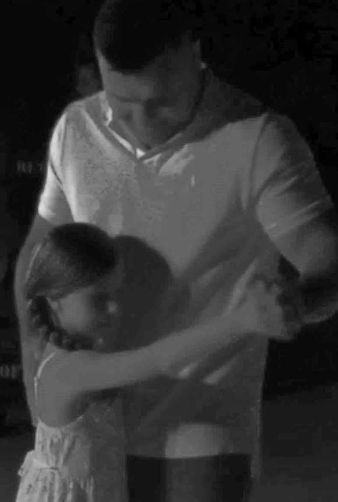
Gunn, on the other hand, loves the feeling of power and rhythm that fighting conjures in an otherwise unsure world. But he doesn’t savor the rage, preferring to keep that part of himself separate from his family.
“I don’t like the feeling,” he says about unleashing the “monster” in the ring — a statement only partly true. “My grandfather always said to leave the bums at the gym. If you fight the monster long enough, you become the monster, so I separate my life — I want to quickly get back to my family afterward and pretend it never happened.”
More importantly, he worries his actions will somehow harm his daughter, disrupting the fairy-tale upbringing he sweats and bleeds to provide.
“It’s hard when I walk into the school and see the other parents,” he says. “If they really knew who I was, they wouldn’t look at me as a normal person — ‘Oh, my God, this guy is ferocious.’ But it isn’t the case.”
Gunn has promised his wife, Rose, that this is his last year in the ring. It is a promise he has broken repeatedly. However, at forty-three, he admits it’s getting harder.
“My body don’t heal the same way anymore,” he says. “My hands are breaking. My joints are going out. Every night, I wake up and feel like my shoulders are out of socket. I have to rotate them thirty times in the shower every morning just to get going — I can’t lift my hands above my head.”
Yet despite his injuries, Gunn knows he needs one last fight, a match to help set up his family for a better future, a win for enough money to maybe even build out his construction business and finally leave the underground behind for good. Now, he hopes, it has finally arrived.
“For years, I beat everybody they put in front of me,” he says. “Now I don’t care no more — I’ve got one more fight and then I’m out.”
In June, Gunn is slated to fight MMA journeyman and longtime underground brawler Shannon Ritch in a $100,000 bare-knuckle bout in western Miami — a showdown that could finally yield a decent payday. Ritch, forty-five, is one of the original MMA fighters, a brawler who has been competing since the nineties, back when MMA was illegal and the fighters didn’t wear gloves. He is a ripped 205 pounds, his biceps and pecs adorned with fire-breathing dragon tattoos, his Mohawk a sort of Guy Fieri number spiked and bleached and running down the back of his skull like a moussed pelt of roadkill. The son of a cotton farmer raised on the Mexican border in Arizona, Ritch has worked as a bouncer, a Blackwater security contractor in Iraq, and, in addition to his legal MMA matches, a bare-knuckle brawler with a 25-2 record in fights from LA to Houston, to Mexico. He and Gunn once shared billing on the same underground event in the early 1990s, a two-card bare-knuckle match in a warehouse in Albuquerque. Both fighters won their bouts. Now, in the twilight of his career, Ritch is training around the clock in Yuma, Arizona, with one goal in mind: to beat the ever-living hell out of Gunn.
“Back in the day, everybody knew Bobby was the champ,” Ritch says, taunting his opponent. “But now he looks like shit. I’m going to smash him.”
Gunn has other plans.
“A hundred thousand ain’t chump change,” he says, pausing at a traffic light. “He’s brought out the beast — I’m the fucking bastard he’s going to wish he’d never seen.”
The Charge will help you move better, think clearer and stay in the game longer. Subscribe to our wellness newsletter today.
